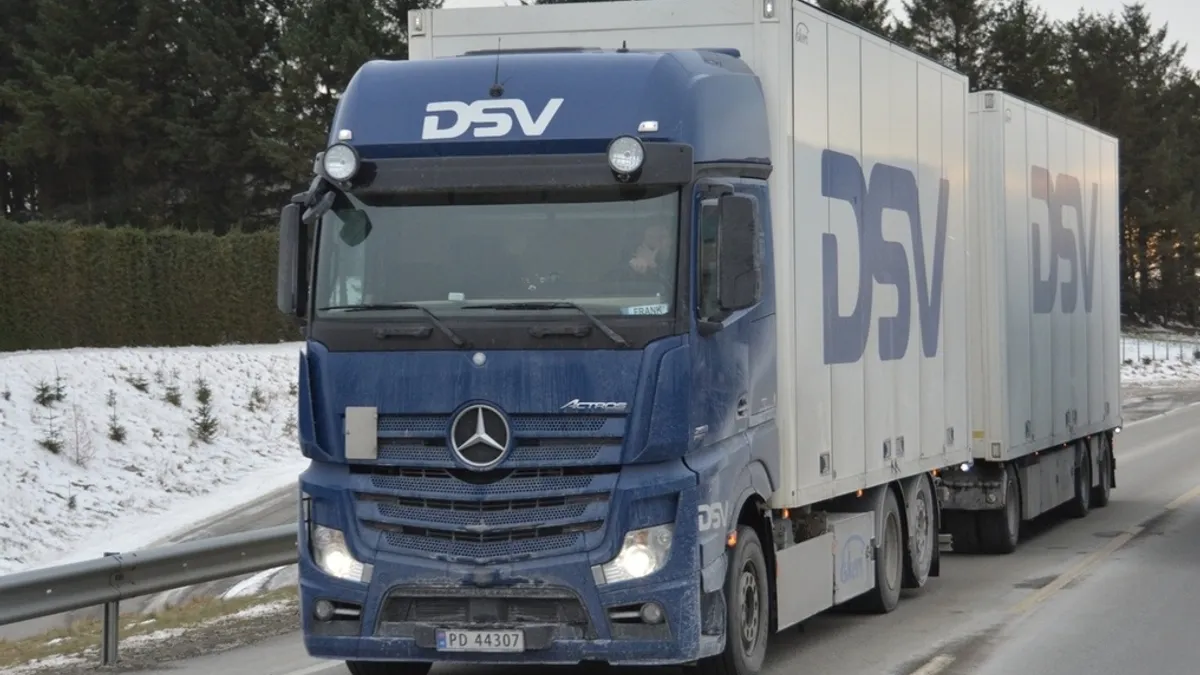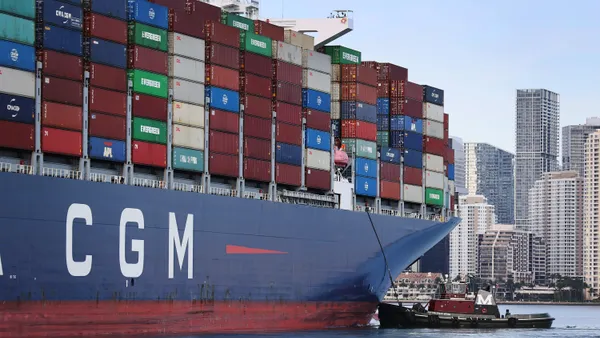DSV Panalpina said its acquisition of Agility's Global Integrated Logistics unit will make it the third-largest freight forwarder, with estimated revenue of $22 billion. The deal, valued at $4.2 billion, provides DSV with added capacity and much-needed scale in the fragmented forwarding industry.
Agility has volumes of 740,000 ocean TEUs and 415,000 metric tons of airfreight, according to the latest data from Armstrong & Associates, updated last July. Slides from DSV put its figures at 600,000 for ocean and 300,000 for air. Combined, the two forwarders expect volumes totaling 2.8 million TEUs and 1.6 million metric tons of air cargo.
But the added capacity won't remove competition from the market. Instead, increased size builds DSV's clout with shippers, who want to know the forwarder has purchasing power with ocean carriers.
"They now have a better negotiation position because they can put down more freight," Alexander Nowroth, managing partner at Lebenswerk Consulting Group, said in an email.
Forwarders and shippers that book freight directly have been in a tough position for several months, as they face tight capacity from logistics providers. Port congestion and the Suez Canal logjam have only added to container shipping's woes.
The ocean freight market from Asia Pacific to North America is strained, according to insights from C.H. Robinson, and the forwarder expects volume to increase as shippers use old contract rates to move freight. Conversions from ocean to air have put the airfreight market in critical status. Congestion across the board has affected forwarders as they attempt to secure space for shippers.
Agility adds air and ocean volume to DSV
Despite the added scale, DSV's acquisition won't make a significant splash in consolidating the forwarding market. Consolidation in the industry slowed during the pandemic, according to Panjiva. Large-scale M&A doesn't appear to be a trend catching on in the forwarding industry, despite fragmentation.
Kuehne + Nagel only briefly mentioned the closing of an acquisition on its earnings call this week. And Deutsche Post CEO Frank Appel said in March, "there is some activity" regarding M&A. "If we can augment our capabilities, we would consider, but there is nothing huge in the pipeline at the current stage," he said.
"It is still an incredibly fragmented sector where profit margins remain low, indicating a high degree of competition," Chris Rogers, lead supply chain analyst at S&P Global-owned Panjiva, said in an email. "We haven’t seen significant comments from other corporations about wanting to build scale or pursue a similar approach to DSV's."
As such, the acquisition won't significantly impact shippers in terms of competitive service and pricing in forwarding.
"This ticks all the boxes in terms of scale and improvement in diversifying DSV’s revenue mix."

Chris Rogers
Lead supply chain analyst at S&P Global-owned Panjiva
DSV has shown a hunger for M&A, feeding its desire with the $4.6 billion acquisition of Panalpina two years ago, the Agility acquisition and smaller ones in between. DSV boasts a history of growing via the acquisition trail. CEO Jens Bjørn Andersen in February described M&A as "carved in stone in the strategy document of DSV."
Agility, DSV and Panalpina have also been in an M&A love triangle of sorts. DSV made two offers in 2019 before Panalpina accepted the deal, and Panalpina had also been in talks with Agility as the bids were ongoing.
This year, DSV's appetite for M&A "is bigger than ever before," Andersen said in February. "We'll be much more active in 2021," Andersen said, adding that the next target company would be "companies like ourselves."
For that reason, the Agility announcement did not surprise analysts.
"This ticks all the boxes in terms of scale and improvement in diversifying DSV’s revenue mix," Rogers said.
DSV named large, global freight forwarders with high exposure to air and sea freight as its main acquisition targets — a mold which Agility fits. DSV is on an "aggressive growth curve," Nowroth said. The question becomes: Who's the next target?
Nowroth said it's possible DSV could buy a small carrier to own assets, a move that would blur the carrier-forwarder lines as Maersk did when it absorbed Damco.
DSV and Agility expect the transaction to close in Q3, pending approval from regulators and Agility shareholders.













